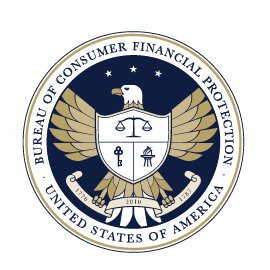 In a follow up to an advisory jury’s verdict, finding that a law firm’s pre-suit collection letters contained “false, deceptive, or misleading representations or means in connection with the collection of a debt” while rejecting a claim that the firm’s attorneys were not meaningfully involved in the debt collection process in violation of the federal Fair Debt Collection Practices Act, the accused law firm filed its proposed findings of fact and conclusions of law on June 29, arguing that if their legal services were good enough for Richard Cordray when he held the office of Attorney General of the State of Ohio, then they should also be good enough for the Court in considering whether or not the firm’s attorneys were “meaningfully involved” in the collections process in order to avoid FDCPA liability.
In a follow up to an advisory jury’s verdict, finding that a law firm’s pre-suit collection letters contained “false, deceptive, or misleading representations or means in connection with the collection of a debt” while rejecting a claim that the firm’s attorneys were not meaningfully involved in the debt collection process in violation of the federal Fair Debt Collection Practices Act, the accused law firm filed its proposed findings of fact and conclusions of law on June 29, arguing that if their legal services were good enough for Richard Cordray when he held the office of Attorney General of the State of Ohio, then they should also be good enough for the Court in considering whether or not the firm’s attorneys were “meaningfully involved” in the collections process in order to avoid FDCPA liability.
A copy of the firm’s Proposed Findings of Fact and Conclusions of Law is available here.
In April 2017, the CFPB commenced an enforcement action against the firm in the U.S. District Court for the Northern District of Ohio (Consumer Financial Protection Bureau v. Weltman, Weinberg & Reis Co., L.P.A.) alleging that collection letters being sent out by the firm misled consumer recipients of the letters by suggesting that they were from an attorney although no attorney with the firm had been “meaningfully involved” in sending the letters.
The firm concurred with the CFPB’s outline of its collections process and the role the firm’s attorneys play. Specifically, the firm wrote that its attorneys created and implemented its compliance policies and procedures and training program for the firm’s non-attorney employees. The firm also stressed that its attorneys interact heavily with its non-attorney employees on consumer law compliance, its implemented procedures and its attorney-developed and client-specific collections processes. The firm also highlighted the role its attorneys play in accepting new clients, which involves in-depth conversations with potential clients to “evaluate the characteristics of the accounts for which collection services are sought to make recommendations to the client the appropriate collection activity.”
The firm pointed out that its attorneys, who are “recognized experts in debt collection” review certain samples of documents related to the type of debt the client is seeking to have collected “based upon their professional judgment and the specific issues that relate to the types of files being handled.” The firm identifies as an example that in the context of credit card debt, its attorneys would review and analyze “terms and conditions that govern the credit card, the application that was provided to obtain the card, the last payment date on the account, and the availability of monthly account statements.”
Once the firm completes its due diligence investigation of the potential client and the accuracy of its account level data and availability of supporting documentation, the client is signed pursuant to certain contractual terms, which include warranties that the accounts they are submitting to the firm are “valid claims that are due and owing for collection.”
The firm also pointed to its automated scrub process which is “designed by attorneys in accordance with governing law” and serves to “identify bankruptcies, deaths, military service, and potential statute of limitations issues, because a ‘hit’ on an account immediately affects the handling of that account based on the information that is received.”
As for the letter in issue, the firm stated a collection letter is “sent on [firm] letterhead to accurately convey the facts that [it] is a law firm that has been retained to collect the putative debt; no more, no less” and that “[t]he letter does not state that an attorney has reviewed the particular circumstances of the account, it does not mention any potential legal action, and it is not signed by an attorney.” The firm added that the letter is calculated to serve two purposes, “advise the putative debtor (1) that the debt has been placed with [the firm] for collection and (2) that the consumer has specific rights under the FDCPA.” The firm concluded that these activities display that its “attorneys are meaningfully involved in the debt collection process, including the process by which letters are sent on [the firm’s] letterhead to consumers.”
The firm emphasized the uncontested fact that during 2009 and 2010, Alan Weinberg, a member of the firm, was named by Cordray as “Special Counsel to the Ohio Attorney General to collect debts for the State of Ohio.” During this time period, the firm noted, it was subject to a rigorous yearly approval process by the Ohio Attorney General’s office during which it explained and discussed its collections model, including the role attorneys and non-attorneys play, as well as quarterly performance reviews to ensure “nothing less than complete respect for the rights and reasonable expectations of the public” as well as “compliance with state and federal debt collection laws, including the FDCPA.”
The firm maintains that its current level of attorney involvement, including its collections processes, now under fire from the CFPB, was the same in 2009 and 2010 when it was engaging in collections for the State of Ohio and at the direction of Cordray.
In addressing the CFPB’s survey evidence and expert testimony, the firm discounted the import of same, suggesting that despite such evidence and despite the CFPB’s extensive investigation of the firm’s practices beginning in 2014 and encompassing four Civil Investigative Demands “and with 4.2 million form demand letters sent to consumers between July 1, 2011, and October 31, 2017—the CFPB never identified a single consumer who was harmed by [the firm’s] conduct.”
Significantly, the firm points out that the CFPB did not call any consumer to testify at trial and suggested that in short “the CFPB offered no evidence that any consumer has been harmed by [the firm’s] collection practices—no evidence that any consumer has paid a debt that was not owed, no evidence that any consumer has been misled, and no evidence that any consumer has been confused.”
While impactful, it is important to remember that historically FDCPA litigation does not necessarily require that a consumer be actually misled as the “least sophisticated consumer” standard is an objective one, although with 4.2 million consumers sent an allegedly offending letter, one would certainly have expected the CFPB to have identified at least some individuals personally affected by the allegedly false and misleading collection practices being attacked.
In reliance upon the Court’s charge to the jury, the firm argued that to find a violation of the FDCPA, the Court must be satisfied beyond a preponderance of the evidence that “(a) [the firm’s] letters imply to the least sophisticated consumer, under the FDCPA, or the reasonable consumer, under the CFPA, that they are sent by an attorney, and (b) [the firm’s] attorneys were not meaningfully involved in the debt collection process, and (c) the implication that [the firm’s] letters were sent by an attorney was material.” (emphasis in original).
Because the jury stopped short of finding a lack of meaningful involvement, the firm argued that it did not violate the FDCPA’s prohibition on false and misleading conduct but that even if it did, the CFPB failed to prove that any representation was material as it “presented no evidence of any kind that any representation that [the firm’s] demand letters are from an attorney is likely to influence the decision of any consumer” regarding “whether and when to pay a debt.”
The question for the Court to decide is whether the letters in issue, which the jury concluded contained “false, deceptive, or misleading representations,” suggested a level of attorney involvement in the collections of the account which did not occur. What is clear is that while the firm’s attorneys are quite involved in the overall collections process, some could argue that no individual attorney actually spends any time with a consumer’s individual file prior to a letter being generated and sent by the firm.
While the firm acknowledged that its letters do “not state that an attorney has reviewed the particular circumstances of the account”, the letters also do not specifically dissuade from the notion that an attorney has, in fact, been personally involved and reviewed the account via a disclaimer regarding what role if any an attorney had. See, e.g. Greco v. Trauner, Cohen & Thomas, L.L.P., 412 F.3d 360 (2d Cir. 2005). It is now up to the Court to determine whether the firm’s process and level of attorney involvement are sufficient in light of the messages conveyed to consumers by the letters in issue.


